James A. Duke, Ph.D.
See book keywords and concepts |
 Don't confine yourself to supplements, either. Plants that are rich in vitamin C include Chinese bitter melon, bell peppers, cayenne pepper, poke-weed shoots, guava and watercress.
Altitude Sickness
Icelebrated my 65th birthday climbing Machu Picchu, the famous 9,000-foot mountain in Peru. And just the day before that, I had climbed its steeper sister peak, Huainu Picchu. Two days of tough climbing nearly two miles above sea level and I could have suffered a bad bout of altitude sickness, what people in the Andes call soroche. Don't confine yourself to supplements, either. Plants that are rich in vitamin C include Chinese bitter melon, bell peppers, cayenne pepper, poke-weed shoots, guava and watercress.
Altitude Sickness
Icelebrated my 65th birthday climbing Machu Picchu, the famous 9,000-foot mountain in Peru. And just the day before that, I had climbed its steeper sister peak, Huainu Picchu. Two days of tough climbing nearly two miles above sea level and I could have suffered a bad bout of altitude sickness, what people in the Andes call soroche. |
David Brownstein
See book keywords and concepts |
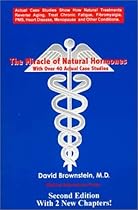 The following supplements are helpful: Vitamin C-3,000mg/day, Vitamin D-400I.U./day, Calcium Citrate-1,000mg/day and Magnesium Chelate-400mg/day.
A WORD OF CAUTION
Health food stores may advertise products developed from yams as having natural progesterone-like effects on the body. It is impossible for the body to convert the chemicals in the yam to an active hormone such as progesterone. Unless natural progesterone is added to the product, the body will be unable to derive any progesterone benefits from it.
1 Rossignol, A.M. The following supplements are helpful: Vitamin C-3,000mg/day, Vitamin D-400I.U./day, Calcium Citrate-1,000mg/day and Magnesium Chelate-400mg/day.
A WORD OF CAUTION
Health food stores may advertise products developed from yams as having natural progesterone-like effects on the body. It is impossible for the body to convert the chemicals in the yam to an active hormone such as progesterone. Unless natural progesterone is added to the product, the body will be unable to derive any progesterone benefits from it.
1 Rossignol, A.M. |
Sheldon Saul Hendler
See book keywords and concepts |
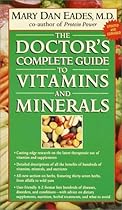 Heart-failure patients were said to have a relative deficiency of CoQ10 in their hearts and to be responsive to daily oral supplements of CoQ10, which, it is reported, increases the production of energy in heart-muscle cells. Some 91 percent of the patients studied showed improvement within thirty days of beginning CoQ10 supplementation. Certainly more investigation of this intriguing vitamin-like nutrient is warranted. Heart-failure patients were said to have a relative deficiency of CoQ10 in their hearts and to be responsive to daily oral supplements of CoQ10, which, it is reported, increases the production of energy in heart-muscle cells. Some 91 percent of the patients studied showed improvement within thirty days of beginning CoQ10 supplementation. Certainly more investigation of this intriguing vitamin-like nutrient is warranted. |
| Recently, however, a group of researchers has come up with a far more sophisticated reason why some people may benefit from these supplements.
German researchers have conducted studies in animals and humans showing that "immune complexes" can be significantly cleared from the body with the use of a preparation of enzymes they call Wobe-Mugos. This preparation consists of pancreatic enzymes and bromelain (enzymes obtained from pineapple). They have reported sometimes dramatic results in such diseases as rheumatoid arthritis, multiple sclerosis and systemic lupus erythematosus. |
| It is possible that normal individuals may derive some energy-enhancing benefits from carnitine supplements, but there is no proof that this is the case.
Nor is there much evidence that carnitine is directly protective against liver disease. Carnitine deficiencies, however, may disturb the normal processes of liver metabolism of lipoproteins, contributing to potentially dangerous elevations in blood levels of triglycerides and cholesterol. (See discussion of cardiovascular disease above. |
| There is no evidence, however, that such supplements will benefit normal individuals who seek to prevent the development of kidney disorders.
It has been hypothesized that carnitine might be a useful supplement for those who are on low-calorie diets, that carnitine, by enhancing the efficiency of fatty-acid oxidation (increasing the burn rate of calories stored as fat), may make low-calorie diets easier to tolerate by reducing feelings of hunger and weakness that result from less efficient oxidation of fats. This is an intriguing idea worthy of some investigation. |
| Don't take B6 supplements in amounts greater than 50 mg daily for prolonged periods of time unless advised to do so by your physician (who should then carefully monitor you for any adverse neurologic side effects).
7) Feverfew. One hundred mg daily of feverfew containing 0.1 mg of the active principles, sesquiterpene lactones, may help in preventing recurrences of migraines. It is important to note that commercial preparations of feverfew vary greatly in their active constituents.
8) Capsaicin. Liniments containing 0. |
| Depressed individuals who want to use choline or phosphatidylcholine supplements should be monitored by a physician.
IV. RECOMMENDATIONS
A) Suggested Intake: For years it was thought that the dietary intake of phosphatidylcholine from the American diet ranged between 4 to 9 grams daily. This corresponds to 400 to 900 milligrams daily of choline (choline makes up about 10 percent of phosphatidylcholine). A more rigorous calculation performed in 1979 by Richard Wurtman demonstrated that the average intake of phosphatidylcholine by Americans is 3. |
Committee on Diet, Nutrition, and Cancer, Assembly of Life Sciences National Research Council
See book keywords and concepts |
 The influence of oral vitamin C supplements on experimental colorectal tumour induction. Austr. N. Z. J. Med. 10:588. Abstract.
MacLennan, R., J. Da Costa, N. E. Day, C. H. Law, Y. K. Ng, and K. Shanmugaratnam. 1977. Risk, factors for lung cancer in Singapore Chinese, a population with high female incidence rates. Int. J. Cancer 20:854-860.
Mathews-Roth, M. M., M. A. Pathak, T. B. Fitzpatrick, L. H. Harber, and E. H. Kass. 1977. Beta carotene therapy for erythropoietic protoporphyria and other photosensitivity diseases. Arch. Dermatol. 113:1229-1232.
Meinsma, L. 1964. The influence of oral vitamin C supplements on experimental colorectal tumour induction. Austr. N. Z. J. Med. 10:588. Abstract.
MacLennan, R., J. Da Costa, N. E. Day, C. H. Law, Y. K. Ng, and K. Shanmugaratnam. 1977. Risk, factors for lung cancer in Singapore Chinese, a population with high female incidence rates. Int. J. Cancer 20:854-860.
Mathews-Roth, M. M., M. A. Pathak, T. B. Fitzpatrick, L. H. Harber, and E. H. Kass. 1977. Beta carotene therapy for erythropoietic protoporphyria and other photosensitivity diseases. Arch. Dermatol. 113:1229-1232.
Meinsma, L. 1964. |
| Therefore, the committee is unable to predict the health effects of high and potentially toxic doses of isolated nutrients consumed in the form of supplements.
3. In some parts of the world, especially China, Japan, and Iceland, populations that frequently consume salt-cured (including salt-pickled) or smoked foods have a greater incidence of cancers at some sites, especially the esophagus and the stomach. In addition, some methods of smoking and pickling foods seem to produce higher levels of polycyclic aromatic hydrocarbons and N-nitroso compounds. |
| Increasing the selenium intake to more than 200 pg/dayl by the use of supplements has not been shown to confer health benefits exceeding
The upper limit of the Range of Safe and Adequate Daily Dietary Intakes published in the Recommended Dietary Allowances (see Chapter 10). those derived from the consumption of a balanced diet. Such supplementation should be considered an experimental procedure requiring strict medical supervision and is not recommended for use by the public.
Iron. |
| The toxicity of vitamin A in doses exceeding those required for optimum nutrition, and the difficulty of epidemiological studies to distinguish the effects of carotenes from those of vitamin A, argue against increasing vitamin A intake by the use of supplements.
VITAMIN C (ASCORBIC ACID)
Epidemiological Evidence
The associations of vitamin C with cancer in epidemiological studies are mostly indirect since they are based on the consumption of foods known to contain high concentrations of the vitamin. |
| The toxicity of vitamin A in doses exceeding those required for optimum nutrition, and the difficulty of epidemiological studies to distinguish the effects of carotenes from those of vitamin A, argue against increasing vitamin A intake by the use of supplements.
Vitamin C (Ascorbic Acid). The epidemiological data pertaining to the effect of vitamin C on the occurrence of cancer are not extensive. |
| The use of vitamin A supplements was inversely associated with cancer, including lung cancer, in men (but not women) in a case-control study reported by Smith and Jick (1978). Mettlin e_t al. (1979) reported results of a case-control study in which an index of vitamin A consumption, based on frequency of consumption of a group of food items, was inversely associated with lung cancer in males, after controlling for cigarette smoking. In 28 patients with bronchial carcinoma, plasma levels of vitamin A were lower than those in a small group of controls (Basuet al., 1976; Sakula, 1976). |
Robyn Landis
See book keywords and concepts |
 Lifestyle changes are really the long-term treatment for most depression; supplements just provide a natural, nontoxic transition. If depression arises as frequently from nutrient deficiencies as is suspected, triggered by harmful substances we use and healthy things we neglect, then both prevention and treatment must eliminate unhealthy influences and incorporate health-promoting ones. Lifestyle changes are really the long-term treatment for most depression; supplements just provide a natural, nontoxic transition. If depression arises as frequently from nutrient deficiencies as is suspected, triggered by harmful substances we use and healthy things we neglect, then both prevention and treatment must eliminate unhealthy influences and incorporate health-promoting ones. |
James A. Duke, Ph.D.
See book keywords and concepts |
 Unfortunately, because of these incidents, the Food and Drug Administration has decided it's too much of a stimulant, and they have taken steps to remove ephedrine supplements from the market.
When I use ephedra, I brew a tea using a half-teaspoon or so of dried herb (or a half-teaspoon to one teaspoon of tincture) per cup of boiling water. I steep it until it's cool enough to drink. These forms of the herb are safe to use at the recommended doses.
V%, Eucalyptus (Eucalyptus globulus). This herb has a sharp, pungent aroma that is familiar to anyone who has ever sniffed Vicks Vapo-Rub. Unfortunately, because of these incidents, the Food and Drug Administration has decided it's too much of a stimulant, and they have taken steps to remove ephedrine supplements from the market.
When I use ephedra, I brew a tea using a half-teaspoon or so of dried herb (or a half-teaspoon to one teaspoon of tincture) per cup of boiling water. I steep it until it's cool enough to drink. These forms of the herb are safe to use at the recommended doses.
V%, Eucalyptus (Eucalyptus globulus). This herb has a sharp, pungent aroma that is familiar to anyone who has ever sniffed Vicks Vapo-Rub. |
G. Edward Griffin
See book keywords and concepts |
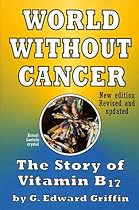 If I fed it to pigs or cows, without adding vitamins and other supplements, I could wipe out the livestock industry."1
A brief look at the American diet tells the story. Grocery shelves are now lined with high carbohydrate foods that have been processed refined, synthesized, artificially flavored, and loaded with chemical preservatives.2 Some manufacturers, aiming their advertisements at the diet-conscious consumer, even boast of how little real food there is in their product. If I fed it to pigs or cows, without adding vitamins and other supplements, I could wipe out the livestock industry."1
A brief look at the American diet tells the story. Grocery shelves are now lined with high carbohydrate foods that have been processed refined, synthesized, artificially flavored, and loaded with chemical preservatives.2 Some manufacturers, aiming their advertisements at the diet-conscious consumer, even boast of how little real food there is in their product. |
Robyn Landis
See book keywords and concepts |
 Even these studies showed lower cancer in nonsmokers taking the supplements; only smokets had increased cancer. (It should never surprise us when smokers get cancer, no matter what else they are doing. No supplement is a substitute for quitting smoking.)
Make no mistake—the bottom line is still that people who eat mote fruits and veggies have the least cancer. It may not be the beta-carotene in those fruits and veggies that provides the whole effect. (The decision to study it alone came from the single-isolated-ingredient paradigm we have discussed. Even these studies showed lower cancer in nonsmokers taking the supplements; only smokets had increased cancer. (It should never surprise us when smokers get cancer, no matter what else they are doing. No supplement is a substitute for quitting smoking.)
Make no mistake—the bottom line is still that people who eat mote fruits and veggies have the least cancer. It may not be the beta-carotene in those fruits and veggies that provides the whole effect. (The decision to study it alone came from the single-isolated-ingredient paradigm we have discussed. |
Dr. Gary Null
See book keywords and concepts |
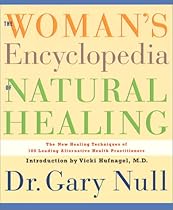 Balanced oil supplements are a mixture of flax, borage, and other unrefined, natural, organic oils. Multiple vitamin/mineral supplement.
Iron and herb supplement. This should be taken if there is anemia from heavy bleeding. Avoid high doses of iron as they are implicated in cancer and heart disease.
Vitamin E. 400 units, twice daily. Silica supplement.
Vitamin C with bioflavonoids. 1,000 mg, five times daily divided over the course of the day.
Evening primrose oil. 100 mg, three times daily.
False unicorn root. Balanced oil supplements are a mixture of flax, borage, and other unrefined, natural, organic oils. Multiple vitamin/mineral supplement.
Iron and herb supplement. This should be taken if there is anemia from heavy bleeding. Avoid high doses of iron as they are implicated in cancer and heart disease.
Vitamin E. 400 units, twice daily. Silica supplement.
Vitamin C with bioflavonoids. 1,000 mg, five times daily divided over the course of the day.
Evening primrose oil. 100 mg, three times daily.
False unicorn root. |
| NUTRITION AND supplements. Another leading researcher in the field of antiaging, Dr. Ross Pelton of San Diego, author of Mind, Food, and Smart Pills, agrees that our brains do not have to deteriorate as we age: "It is simply poor nutrition and abuse that allows this condition to develop. Virtually everyone can enhance their memory, learning capabilities, and intelligence." Dr. Pelton helps his women patients optimize brain functioning with two goals in mind: to slow down or stop the brain aging process, and to optimize the function that we have.
First and foremost, Dr. |
| Other plant supplements such as Ginkgo biloba and American ginseng provide antiaging benefits and aid in preventing cerebral disorders.
Perhaps surprisingly, restriction of food in general has been shown to slow the aging process in animals, suggesting that caloric intake should be lessened with increasing age. More specifically, excess sucrose in the diet may accelerate aging, inducing hyperglycemia and hyperinsulinemia.
Studies suggest that mental deterioration in Alzheimer's patients can be slowed by supplementation of iron, vitamins B6 and B12, coenzyme Q10, and acetyl-L-carnitine. |
| Carotenoid and retinoid supplements have also been shown to prevent breast cancer, including beta carotene, apocarotenal, and canthaxanthion.
"Foods that May Prevent Breast Cancer: Studies are Investigating Soybeans, Whole Wheat and Green Tea, Among Others," Primary Care and Cancer 14, no. 2 (February 1994): 10-11.
Two-thirds of all animal studies on the effects of genis-tein-containing soy materials on the risk of cancer yielded results showing the risk to be significantly reduced by the soy.
S. |
| In a placebo-controlled experiment, zinc gluconate supplements of 100 mg daily given to 35 female anorexics doubled the rate of increase in body mass in comparison to the placebo group.
C. L. Birmingham et al., "Controlled Trial of Zinc Supplementation in Anorexia Nervosa," International Journal of Eating Disorders 15, no. 3 (April 1994): 251-55.
Zinc supplementation has been shown not only to enhance appetite, taste sensitivity, and smell but also to enhance mental state. Zinc alleviates depression and anxiety.
D. Bryce-Smith and R. |
Robert S. McCaleb, Evelyn Leigh, and Krista Morien
See book keywords and concepts |
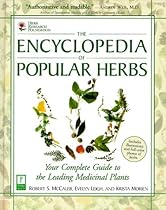 Participants were required to discontinue the use of any drugs or supplements that might affect cardiovascular health for at least 6 weeks prior to treatment, and were instructed to avoid eating isoflavone-rich legumes throughout the study. At the end of each period (run-in, placebo, and two active periods), researchers measured arterial compliance using ultrasound, as well as isoflavonoid absorption and serum cholesterol levels.
The results of the study showed a statistically significant increase in arterial compliance in the red clover group, compared with the placebo group (a value of 23. Participants were required to discontinue the use of any drugs or supplements that might affect cardiovascular health for at least 6 weeks prior to treatment, and were instructed to avoid eating isoflavone-rich legumes throughout the study. At the end of each period (run-in, placebo, and two active periods), researchers measured arterial compliance using ultrasound, as well as isoflavonoid absorption and serum cholesterol levels.
The results of the study showed a statistically significant increase in arterial compliance in the red clover group, compared with the placebo group (a value of 23. |
| Because allicin is an unstable compound that begins to degrade shortly after it is produced, some manufacturers of garlic supplements have developed processing methods designed to stabilize or guarantee the allicin yield of the final product when it is consumed. This is what it means when you see the terms "allicin yield" or "allicin potential" on the labels of some standardized garlic products. Fresh raw garlic and products made from dried garlic powder contain the highest levels of allicin. |
| V w
Evening Primrose
Oenothera biennis Onagraceae
State of Knowledge: Five-Star Rating System
Clinical (human) research Laboratory research History of use/traditional use Safety record International acceptance
Part Used: Seed Primary Uses
• Diabetic neuropathy (nerve damage) (experimental)
' Breast pain or tenderness (experimental)
• Chronic eczema (experimental)
' Premenstrual syndrome (experimental) ver the past decade, evening prim-| rose oil (EPO) has become one of the most popular supplements on the American and European markets. |
| In addition, a limited amount of research has shown that cranberry supplements (capsules) may help reduce the frequency of urinary tract infections for women troubled by frequent recurrences.4
Scientists have shown that cranberry's power to prevent urinary tract infection and relieve symptoms comes from its ability to keep disease-causing bacteria from adhering to the walls of the urinary tract, thereby reducing the risk of infection. Escherichia coli bacteria (commonly known as £. coli) are believed to cause more than 80 percent of all urinary tract infections. |
| Most evening primrose supplements are composed of 7 to 10 percent GLA.1 Oils from the seeds of black currant (Kibes nigrum) and borage (Borago officinalis) generally provide higher amounts of GLA at a lower cost, although scientific research is lacking on these two plants. Black currant oil contains 14 to 19 percent GLA, and borage seed between 20 and 26 percent GLA.1'2
Despite all the enthusiasm about GLA, evening primrose oil is probably not a necessary supplement for everyone. Healthy bodies easily convert omega-6 EFAs in nuts, seeds, and vegetable oils into GLA. |
| In numerous studies, garlic powder and aged garlic supplements as well as fresh garlic have demonstrated an ability to lower cholesterol and blood pressure, reduce platelet aggregation (clumping), and inhibit the effects of fibrinogen (a protein involved in blood clotting). A certain amount of both platelet aggregation and fibrinogen are necessary for proper blood clotting, but too much can lead to atherosclerosis. All of garlic's effects in this area are important indicators of its ability to prevent the development of atherosclerosis at many different points in the process. |
Dr. Gary Null
See book keywords and concepts |
 Ten iron-deficiency anemic patients were treated for 3-6 weeks with iron and B12 supplements. Results: Red cell indices normalized.
P. Gram-Hansen et al., "Glycosylated Hemoglobin (HbAlc) in Iron and Vitamin B12 Deficiency," Journal of Internal Medicine 221 (1990): 33-136.
. BIRTH CONTROL
In the United States of the 1990s, no subject is more volatile or more politicized than that of birth control. My goal in this chapter is not to add to any side of the debate but merely to make sure that the information already available to some in the alternative health community is available to all. Ten iron-deficiency anemic patients were treated for 3-6 weeks with iron and B12 supplements. Results: Red cell indices normalized.
P. Gram-Hansen et al., "Glycosylated Hemoglobin (HbAlc) in Iron and Vitamin B12 Deficiency," Journal of Internal Medicine 221 (1990): 33-136.
. BIRTH CONTROL
In the United States of the 1990s, no subject is more volatile or more politicized than that of birth control. My goal in this chapter is not to add to any side of the debate but merely to make sure that the information already available to some in the alternative health community is available to all. |












